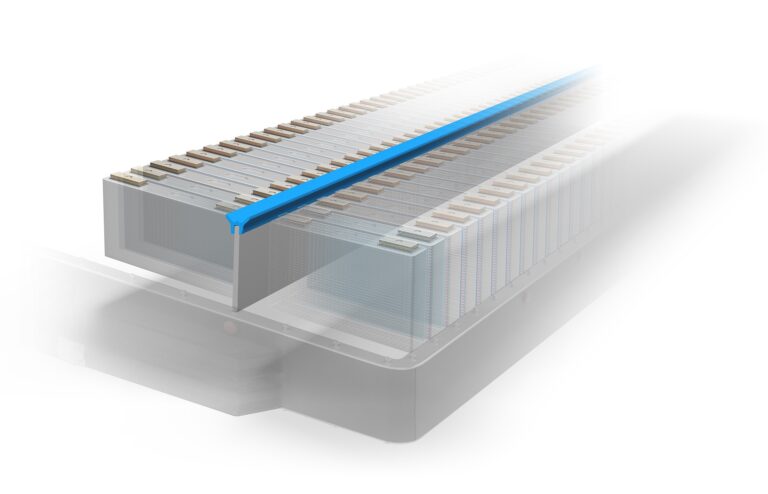To improve the efficiency of electric vehicles, OEMs are working to increase range and shorten charging times. However, when developing lithium-ion batteries with a higher energy density there is a risk of thermal runaway. To overcome this, Freudenberg Sealing Technologies has developed thermal barriers to slow down – or even stop – thermal runaway by increasing thermal propagation resistance.
“What is completely new is that the thermal barriers are now also available in customized, flexible 3D geometries, which makes it possible to use them in various positions within the battery and allows for integration of additional components,” said Andrew Espinoza, global vice president of technology in the Oil Seals Powertrain & Driveline Division at Freudenberg Sealing Technologies.
Thermal runaway, which is the ignition or explosion of a battery cell caused by a self-reinforcing heating process, is a significant safety problem. It can be caused by a range of internal and external factors, such as overcharging, excessive discharging, damage or heating of the battery. Thermal runaway releases not only flames and hot gases but also electrically conductive particles. These can cause thermal propagation in adjacent cells and lead to short circuits in the electrical system. Thermal barriers act as protective layers that slow down or even prevent the heat and flames from spreading in the battery, which significantly increases safety.
Instead of using conventional 2D barriers to prevent thermal runaway – such as flat mats and thermal blankets – the company has developed a 3D variant that can be produced using a variety of high- and low-volume manufacturing processes, including injection molding and continuous extrusion. At present, profile seals, module separators and covers – including those for bus bars, cooling lines and electrical components – are being produced. The 3D geometries are lightweight in comparison with traditionally used alternatives, ensuring they have a minimal impact on the battery’s overall weight.
To meet the requirements of the aforementioned applications, Freudenberg Sealing Technologies has developed heat-resistant, electrical and thermal insulating materials. These have been tested in-house to ensure they can withstand temperatures up to 1,200°C. The company’s materials benefit from a specially developed composition that makes the compounded polymers extremely heat resistant. Furthermore, the materials are resistant to particle impacts such as those that occur when cells are vented.
“The three-dimensional thermal barriers and the utilized materials have gone through extensive testing that exceeds the required standards,” added Espinoza. “They have proved their outstanding performance and reliability on bench tests as well as battery system testing. The products meet the highest quality standards, are certified pursuant to UL 94 V-0 and are already being used successfully in initial series production for the automotive industry.”
For more on electric powertrain technologies, please click here.


